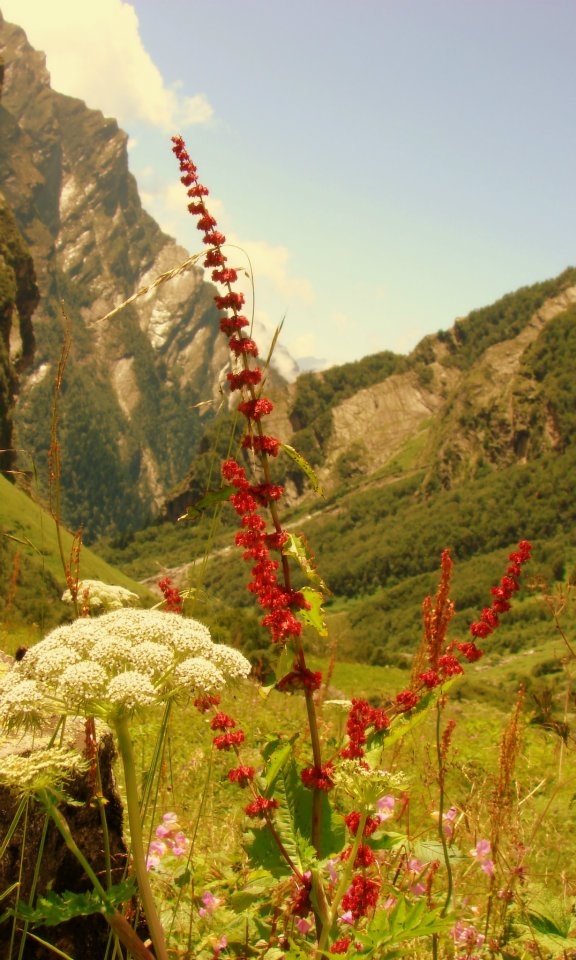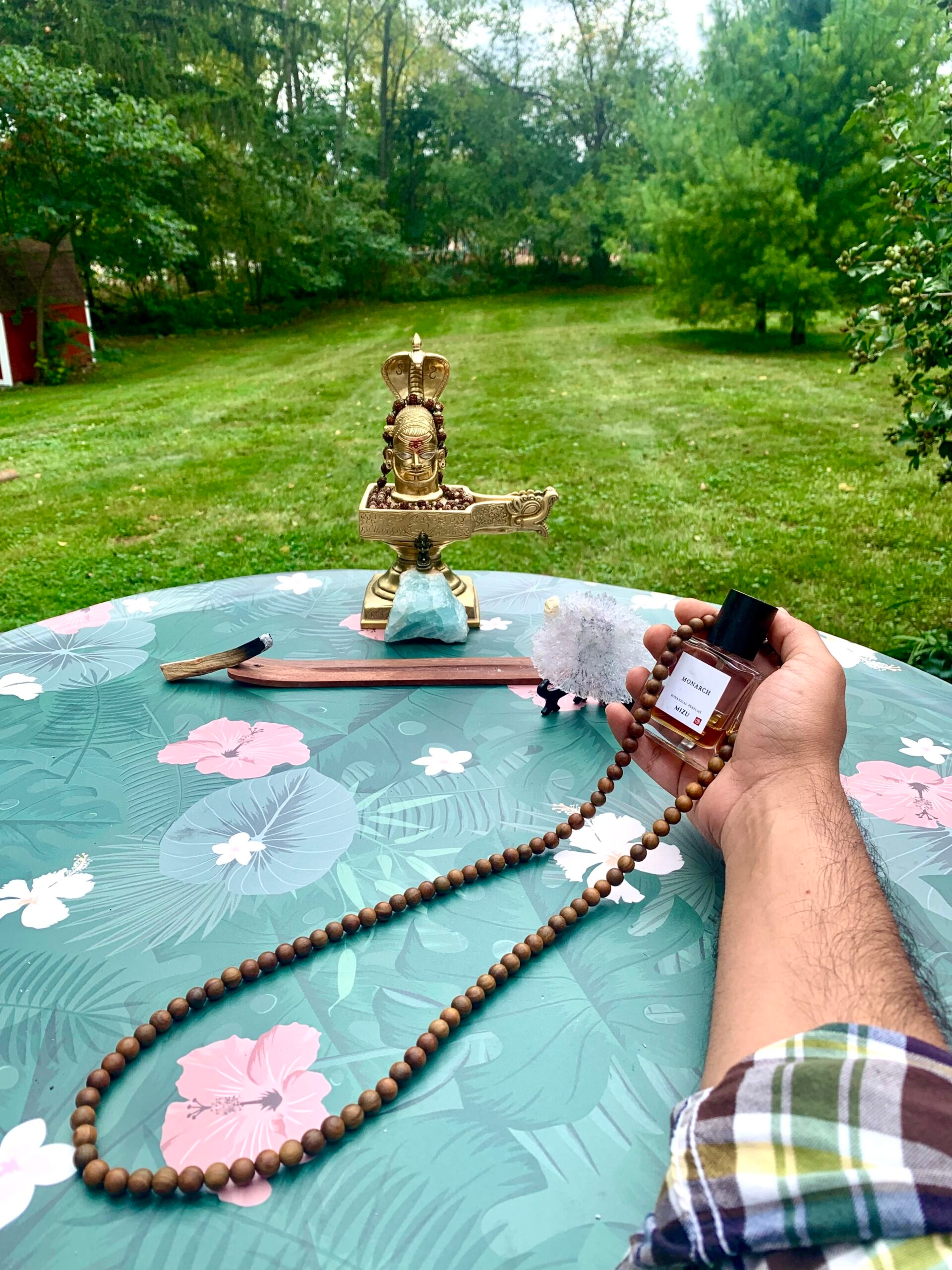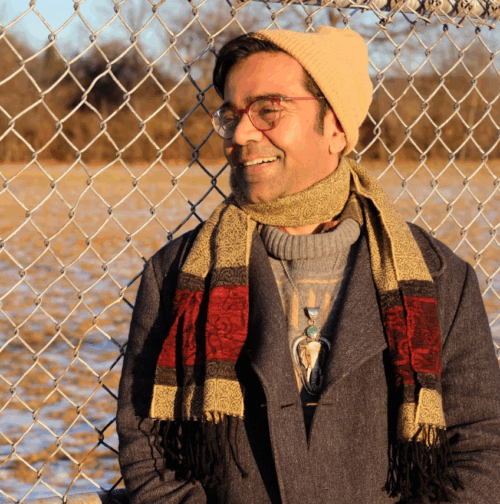WORDS AND PHOTOGRAPHY BYShastri Akella
Listen to this story. Narrated by Shastri Akella.
Listening as a way of knowing and doing

I had, in a manner of speaking, run away from home when I was in my mid-twenties.
My parents had started subjecting me to the pressures of an arranged marriage. Despite my protests, I would routinely come back from work to find a prospective bride and her family in my living room. One night, as I lay down to sleep, I imagined the many parallel realities in which I was married, and those other versions of myself soothed me with their normal lives. I had started to long for a reality I had no interest in. I felt myself on the dangerous precipice of committing to an act I wouldn’t be able to honour.
I didn’t know at the time why I resisted marriage: the system itself, and the possibility of having a life companion. But I felt and heard the resistance, the plangent call of it, and chose to listen to it. I petitioned for a transfer from Hyderabad to Gurgaon—I was working for Google at the time. My request was approved.
*
The Himalayas didn’t feel too far from Gurgaon. Many of its majestic mountains were an overnight train ride from Delhi. They beckoned to me, so I listened and sought the mountains every weekend. I began with the simple routes that took me, by way of Khatgodham, to the hilltown of Almora, and then to the ancient sites of Pandavkholi Cave: the underground passages from where, as legend had it, the Pandavas shed their mortal coil and ascended to the spirit realm. There were stalactites named after each of the five princes, and a column, where the stalactite and stalagmite merged, was called Draupadi.
It was a pattern I would find repeatedly through my travels in the mountains: their ancient topography in active dialogue with stories from the myths I grew up with, having heard them from my grandmother. At a great distance from my home, I had found a way to access, through myth, my ancestor, and that comforted me.
As I built my stamina, I attempted the moderately difficult routes, like the Valley of Flowers, where I experienced the singular thrill of walking over a glacier to access the lushest spread of flowers—their sweet fragrance so potent that it made some of my fellow-travelers giddy, compelling them to sit down for a moment.



Valley of Flowers
*
In the thick of autumn, as the leaves in the upper echelons of the Himalayas were turning, with a sense of spectacle, into bright oranges and reds, I embarked on a three-day hiking tour in Har-ki-Dun, a valley nestled in the hills of Garhwal. On the second day, I had an encounter with a musk deer, immortalized in a couplet of Kabir. I had left the base camp with a few hikers, but they had gotten ahead, and I was by myself when I turned a corner and saw him. More than his distinct, heady scent, his eyes as he met mine, captured my attention.
In one of his essays, John Berger had described that the experience of witnessing an animal in its habitat can fill you with a profound sense of loneliness because the beast reveals a harmonious union with the natural world—a union that you, as a spectator and passerby, are excluded from. As I met the gaze of the deer who wasn’t skittish—he seemed in no particular rush to break eye contact, in fact—I felt that profound loneliness that Berger speaks of.
That day, as I left the deer behind and continued my hike, a distinct image came to me, one that had no traces of my surroundings or my encounter: a young man transfers a picture from one wall to another, locks the door to his house and leaves with nothing more than the clothes he’s wearing.
Upon returning to the guest house, I had the impulse to journal from his perspective. My writing led me to a certain kind of reason: he was transferring a picture from the wall that, in his house, had pictures of the living, to the one that had pictures of the dead. But where was he going, and was it the death of a loved one that spurred him on? I didn’t have an answer.
There was no casual thread connecting the image to what came before it or to what comes after. And as Oscar Wilde notes, all story is causality: ‘there lived a king and a queen, the king died and the queen died’ is not a story; but add causality: ‘there lived a king and a queen, he went to a war that claimed his life and then she died of heartbreak’, and you have a living, throbbing story.
I decided to set my journal aside for now.

Har-ki-Dun
*
That winter, I went to Tunganath, the most difficult hike I had attempted thus far. A steep six-kilometre climb brought me to the highest Siva temple in the world, which was surrounded by trees that flowered only in the winter, red blooms against the snow, imbuing the crisp air with a scent that was a mixture of fresh citrus and amber incense, the prayer room and the kitchen in congress.
Having never seen snow before, I related to it like a child would, playing with and holding it with wonder, its presence, untainted by memory and history, returning me to some former state of innocence. Over the course of the past three months, the Deep Time of the mountains, their presence predating the collective history of my ancestors and promising to outlive everyone I would encounter throughout my lifetime, made me, and with me, all of my problems, feel gratefully transient.
Lying in the rented room of an ashram that night, I listened to the world around me, without the visual splendour that I encountered during the day in attendance. It felt as if the pathway between the world and myself, was opening again. The stillness was stirred only by an occasional breeze that heightened the perfume of flowers. I returned to Tunganath four more times, but never again in the winter, and I craved that scent of the winter blossoms. Last year, like an answered prayer, I discovered a perfume called Monarch, produced by M. Hainey Studios, and it captured that scent so precisely—the mixture of citrus and amber in a cocoon of crisp air—that it instantly returned me to the scent of Tunganath in the winters and the earned freedom I had felt that night.


Tungnath
*
I was in Uttarkashi, the base camp for my trek to Dodi Tal (a freshwater lake in Uttarakhand), when I first heard about street theatre. A fellow mountaineer mentioned a performance. It was taking place the next morning, he said, in the hour before dawn when, as Paulo Coelho noted in The Alchemist, the night is at its darkest.
As a lifelong night owl, I resisted the thought of waking up so early. But as he spoke about the performers with a fond twinkle in his eyes, I heard my intuitive voice, clear as a bell on a quiet morning. And I knew I was meant to bear witness.
*
The performance began. The hour wore the dark skin of night. The lanterns placed in our midst as we, the audience, sat in an open field, flickered in the mountain breeze. The deodar woods behind us flickered with a swarm of fireflies.
A baritone voice soared through the darkness. “At first, there was only the primordial egg. Filled with the unrealized seeds of Life.”
A lamp came to life, illuminating a giant egg—wooden frame, cotton skin—sitting in front of us at an elevation. The call of a conch shell bathed us in its sonic energy, the mouth that breathed air into it unseen—until the lamp was extinguished and a lantern burned to life inside the egg, silhouetting a human form, conch to mouth. The lantern within was moved in time to a drum. A buttery light swished swiftly against taut, translucent satin.
The baritone from before continued: “The egg thought, I exist, but I exist alone. If only there were someone else. Because all was one—the one expressing the desire, the one who listened to it and granted it—there was instant manifestation.”
Fingers moved against the egg’s satin surface. A penknife was run along the centre of the fabric, making a tearing sound amplified by the cleansed silence of the morning.
Four pairs of hands, their faces unseen, placed on the elevation—the stage—lanterns burning bright.
“The seeds inside the egg ripened. They spilled out. Expressions of Life.”
From the egg leapt out actors wearing the masks of a moustachioed man, a serpent, a lion, a fish, and a flower.
Together they danced to the beat of the dhamaru. Their footwork, heavy at first, eased into a more placid version of itself when the percussion stilled and, simultaneously, a flute started to play raga Kirwani.
“With life came the need to keep an account of creaturely hours, to create, where there was a beginning, an end.”
The dancers fell still and started to lie down. The music fell still.
As the sun lit the sky, the final line of the performance was sounded.
“Time was born from the first desire.”
*
When the performance ended and I turned to leave, the amphitheatre of nature, I noticed, had its own show that was no less of a spectacle. The hornbills were returning from their winter migrations, their long ochre beaks like arrows moving with purpose against the ember-red sky of morning. The air smelled of crisp pines and, at a distance, I espoused a mountain goat balanced on a nearly vertical cliff face and eating, with the calm, collected stance of a sage, the outgrowth of grass that sprang to life between the cracks and craigs of the rugged surface. And I was overcome with the distinct sensation that the trees, the goat, the bird, and I and everyone who had come before me had a shared origin: we had risen from the primordial egg.
I was convinced that if I returned to Har-ki-Dhun and met the musk deer again, I would not feel the isolation that I had felt at the time.
That evening, I found the actors having dinner at the one streetside dhaba that remained open after dark. I asked if I could join them, and their chief, with tremendous generosity, moved aside, making room for me on the bench.
“You are paying for our dinner, yes?” he asked, and the table exploded laughing.
I learned his name was Mayank. He told me that the play I had witnessed was an adaptation of a creation myth detailed in the Rig Veda, the most ancient of the Vedic texts that predates Hinduism as we know it today and in which nature was the primary subject of worship. It begins, after all, Mayank said, with a prayer of gratitude to fire, the source of light, heat, and life.
*
I willingly paid for Mayank and his fellow actors’ dinner and asked if I could travel with them. Because an idea had come to me. The young man, who shifts photographs from one wall to another, leaves home and joins a street theatre troupe. My own desire to act, quelled by stage fright, was deferred to this character. I named him Shagun. I didn’t know what would compel him to join an itinerant troupe, but I knew that it was his destination—his destiny.
Mayank agreed under the condition that I work alongside his actors, setting up stages, dismantling them, loading and unloading the boxes with props and the makeup trunk from the truck in which they travelled. He asked me to join him the following season when he would travel from Ganga Sagar, where the river merged with the ocean, to Gangatori, the last pilgrim town along the river’s banks; a nineteen-kilometer trek from here brings you to the glacier from which the Ganga originates. It’s called Gaumukh, denoting its likeness to the face of a cow.
*

In my essay for LitHub, I describe my travels with the troupe and the ways in which they helped the story of Shagun to emerge. The story became my debut novel, The Sea Elephants, published by Penguin India in 2023.
Where the creation myth imbued me with a sense of a shared origin, one that I return to even now, whenever I feel isolated, the mythic stories I witnessed throughout my travels with the troupe introduced me to characters who are often excluded from popular narrations of our myths. Like Chitrangada from The Mahabharata, a transgender character who brings Brihannala to mind. In listening to their voices, soaring through the throats of actors as the Himalayas towered over us with great tenderness, I felt like I had found ancestors who understood, accepted and loved me precisely the way I was. The phrase “skipping a generation” took on a new meaning for me: rather than a trait passed down in a way that suggested no agency, it signified a conscious act to choose ancestors from our shared, collective pool of mythology and place myself in their lineage. I had found a home of my own making.
That year, I started a new practice: on the Mahalaya new moon, when it is customary to honour our ancestors, I started offering my prayers of gratitude to these characters. More recently, the perfume Monarch, which brought me back to my night of freedom in Tunganath, became integral to my ritual.
*
Recently, at a gathering of South Asians in the US, our host, Divya Victor, asked us, by way of introduction, to answer the question “What do I know from,” rather than “where am I from:” in other words, what wisdoms, places, and experiences have shaped us. And I shared the story of how I would have never found my current vocation, as a writer, if I hadn’t surrendered myself to the mountains, if I hadn’t, at the behest of a fellow traveller, gone to witness a performance. The transformation that culminated in me finding my home began with and was completed by the act of listening.
